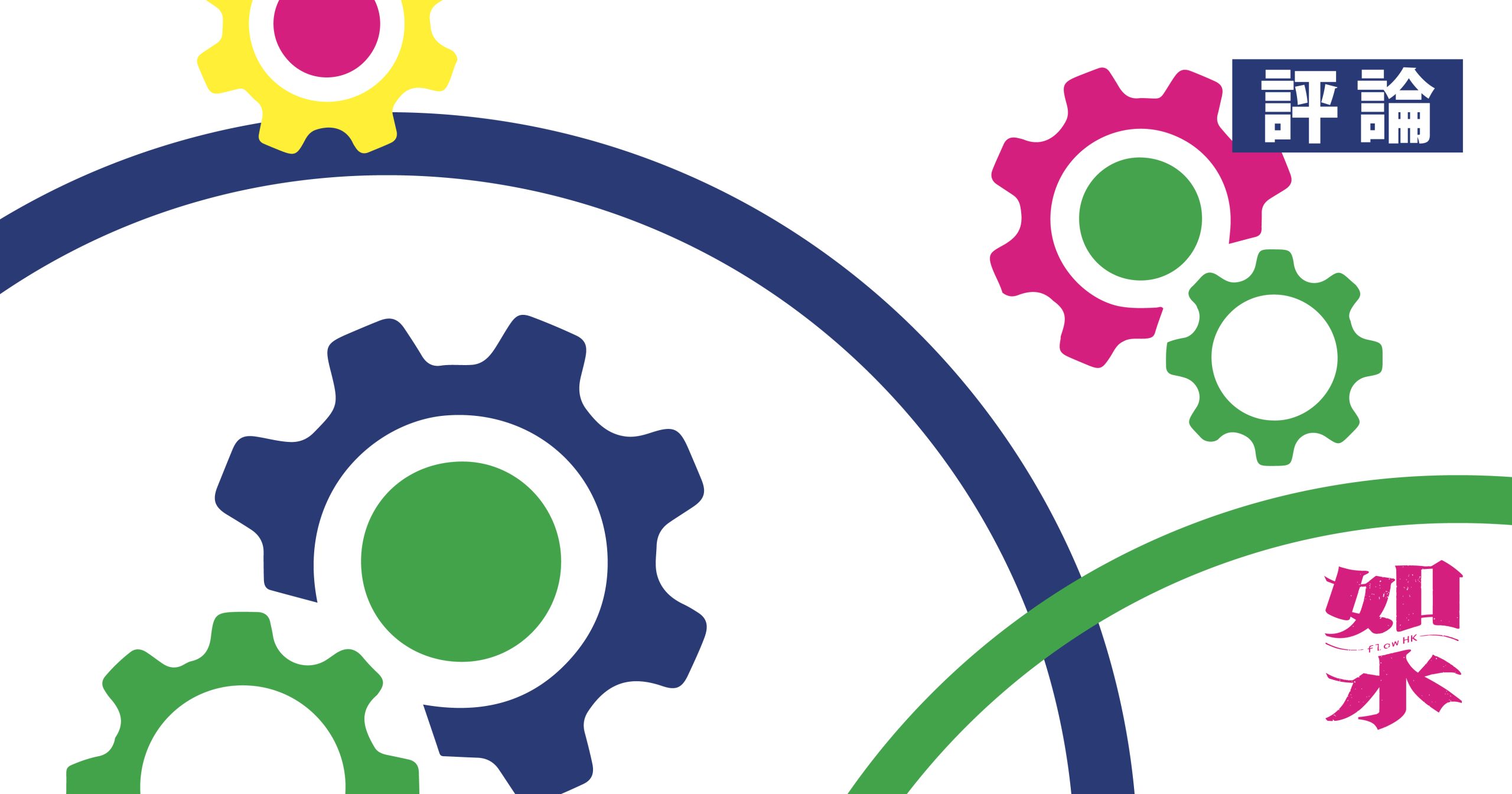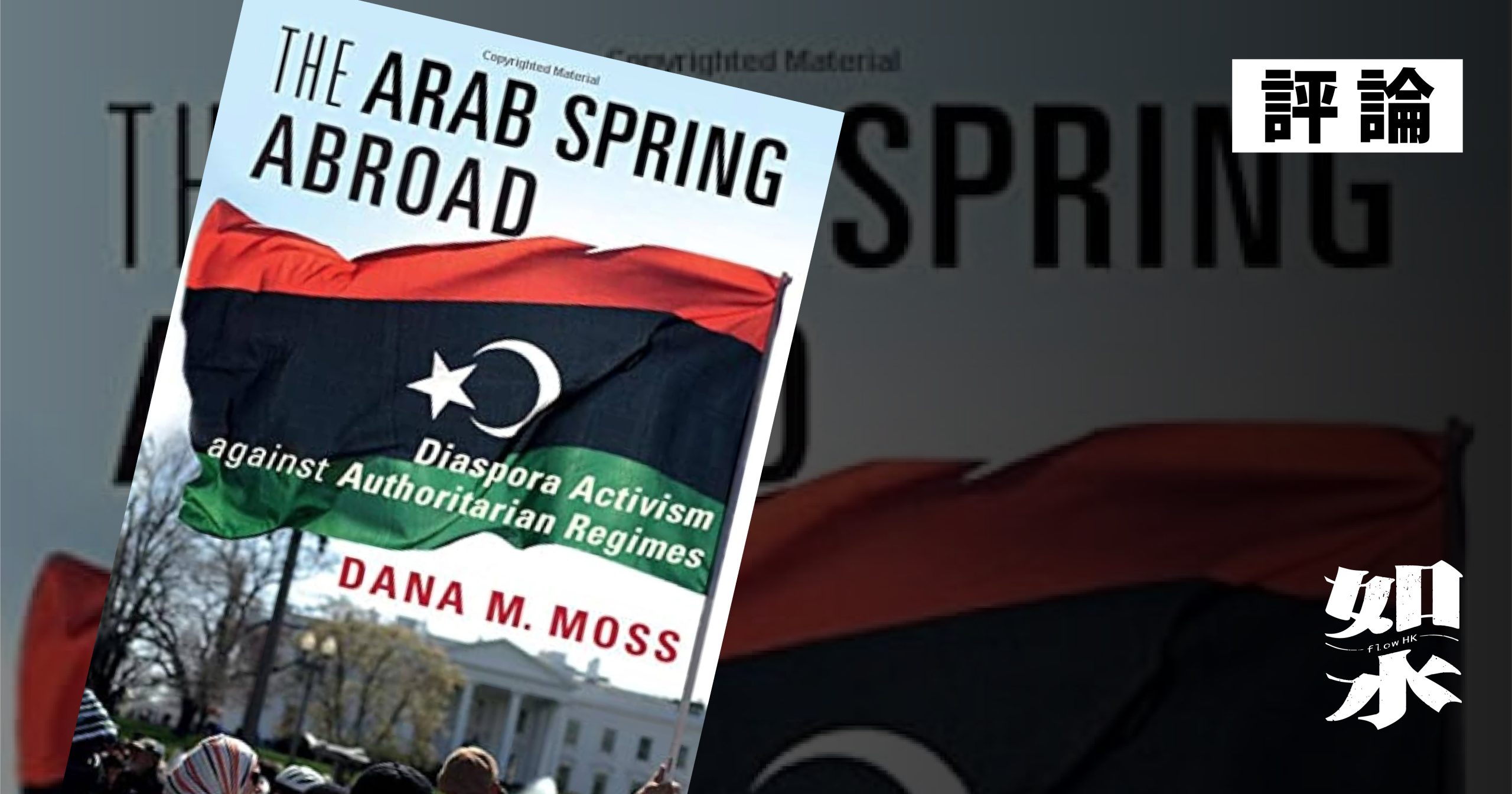Building a Path by Walking It

Note: In this Preface, except where noted, the article titles and quotations in English are my translation.
It is an honor for me to join the other Flow advisers—Nathan Law, Dr. Wu Rwei-ren, and Dr. Hung Ho Fung—upon the launch of Flow and to share some reflections on the issues raised by the contributors in this inaugural issue. In June 2019, one million, then two million, Hong Kong people took to the streets to protest legislative amendments that would have exposed all persons in Hong Kong to the non-transparent and politicized legal system in mainland China.[1] Contrary to the stereotype of Hong Kongers as apolitical and being concerned only with material well-being, here they were flooding the streets—in streams of old and young, families and strangers, and multiple generations of democracy activists, lawyers, social workers, teachers, students, medical workers, and journalists. Marching in the intense heat among the peaceful orderly crowds, I, Hong Kong-born, was filled with pride, admiration, and love for my compatriots.
In 2019, the world witnessed with amazement and awe how the people of Hong Kong stood up to one of the most powerful economic and political powers in the world. But the world radically changed in 2020 as it grappled with the largest and most serious global pandemics since the last century. COVID-19 has killed nearly two million people worldwide, caused untold suffering and loss, and changed the way we work, study, and connect. Since the passage of the National Security Law on June 30, 2020, the Central People’s Government (CPG) and Hong Kong SAR government—often invoking the necessity of COVID-19 health measures to restrict public assemblies—have severely restricted the peaceful exercise of fundamental rights and freedoms and undermined institutional safeguards, including an independent judiciary and media.[2]
And yet, as the voices in this first Flow issue highlight, the movement to defend and advance the rights of Hong Kong people and a democratic future for Hong Kong has not been completely destroyed. Despite serious current obstructions, the struggle, like the myriad forms, resilience, and power of water, will transform and continue. As the first journal by and for the Hong Kong diaspora community, Flow can provide a discursive space for sharing, debating, and contributing to the development of diverse strategies and to building international solidarity.
Reflection on “Entanglement(s)”
In the current Hong Kong climate marked by ongoing arrests[3]—including the January 6, 2021 arrests of 53 individuals for involvement in organizing unofficial primary elections in advance of the ultimately canceled Legislative Council election that had been scheduled for September 2020[4]—as well as attacks on the local media, education system,[5] and the electoral process, the Journal’s ambitious mission to support a critical empowering space for public discourse is timely and much needed. Carrying the resonances of the “be water” leaderless 2019 anti-extradition movement, the Journal’s title, 如水 (Flow), reflects the inherent power and fluidity of a life-sustaining process. Paradigm, in his piece, 反送中—香港的政治啟蒙運動? (“Anti-extradition: A movement of Hong Kong’s political enlightenment?”), describes the new consensus of the anti-extradition movement that distinguished itself from social movements of the past that relied on political leaders—a leaderless movement like water, with diverse means of resistance, but with participants and supporters climbing the mountain together(兄弟爬山).
The topic of this inaugural issue—Entanglements (糾纏)—embraces the layers and complexities of the ties and bonds of history, memory, and culture, and the political and economic tensions in a shifting geopolitical landscape. As Chung Sanho aptly describes in 引言:一因「絆」而起 (“Introduction: Everything started because of ‘stumbling’”), entanglements are both the answer and the question that need to be addressed together.
In reflecting on the entanglements richly explored by the contributors, a physical phenomenon from the sub-atomic realm, quantum entanglement ( 量子糾纏 ),[6] keeps coming to mind. Amazingly, in what Albert Einstein called “spooky action at a distance,”[7] a pair or group of “inextricably linked” particles can affect each other even when the particles are separated by a large distance. Physical properties such as position, momentum, spin, and polarization performed on entangled particles can, in some cases, be found to be perfectly correlated.[8] The image of quantum entanglement can highlight how changes in our physical, mental, and spirit states—fear, despair, hope—can produce empowering (or dis-empowering) correlated impacts that transcend and link people across geo-physical location. In that sense, solidarity is a form of quantum entanglement.
Perhaps the complexity and necessity of entanglement can also be understood as what Martin Luther King, Jr. describes as a “network of mutuality.” In his April 16, 1963 letter from the Birmingham jail, he mounted an eloquent defense of nonviolence and the moral obligation to disobey unjust laws, and sounded a powerful call to social action. He reminded us: “[i]njustice anywhere is a threat to justice everywhere. We are caught in an inescapable network of mutuality, tied in a single garment of destiny. Whatever affects one directly, affects all indirectly.”[9]
Hong Kongers in Hong Kong and in diaspora, and everyone who cares about a more democratic, open, and just future for everyone, are indeed also entangled in an inescapable network of mutuality, like quantum particles inextricably linked. But as members of multiple communities—as citizens, residents, visitors, travelers—we also have to recognize and constantly negotiate the multiple and sometimes competing claims of loyalty and commitment made upon us and that we choose.[10]
Voices of longing, resistance and hope[11]
The articles contributors to this inaugural issue include political activists, former legislators, frontline/brave (勇武派) and peaceful (和理非) movement participants, former student leaders, psychologists, and researchers. From diasporic locations spread out in Europe and North America, they embody a resilient commitment against all odds to a social justice movement that will protect and preserve the future of a beloved homeland.
In his moving reflection, 香港:我們的家園 (Hong Kong: Our Homeland), Ray Wong asks, what is home? Citing German philosophers, he traces the meaning of “homeland” in the German-speaking world and touches on various meanings shaped by classes, beliefs, cultures, and nations. He posits a hypothetical scenario where Hong Kongers all speak putonghua and uphold “Outline for Learning Xi Jinping Thought on Socialism with Chinese Characteristics for a New Era,” and where Queen’s Road Central is renamed People’s Avenue Central, and so forth. He asks: “[i]s this piece of land called Hong Kong still our home?” He responds: “[t]he answer is obvious: in addition to the land, culture and values are the basic elements that constitute ‘homeland.’” And highlighting the fluidity of “homeland,” he notes that as we develop personal world views and value systems, our imagined and metaphysical homeland will also change.
In the context of a profusion of headlines that preemptively assert “Hong Kong is dead” or “Hong Kong is now stable again,” the diverse voices in this inaugural issue of Flow also help to counter dominant fact-adverse narratives that are actively propagated by state-controlled media outlets to the domestic and international audiences. But even under the draconian shadow of the National Security Law, Human Rights in China (HRIC), the organization that I lead, has argued that it is still too soon to concede Hong Kong’s future.[12] In 擺脫歷史糾纏:重建香港人的香港(“Shaking off the entanglement of history: Rebuild a Hong Kong for Hong Kong People”), Sunny Cheung looks at the discursive “othering” of Hong Kong by China and points out the need to reclaim, understand, and center Hong Kong’s own history, free from the instrumentalist conflation of nationality (Chinese citizens) and ethnicity (Chinese) embedded in the language of the Communist Party of China. These voices collectively reimagine other future(s), and, even if “stumbling” towards it, Hong Kong people will stumble together, keeping warm and walking together (see Introduction by Chung Sanho).
While many outside observers and commentators have pointed to the quiet or emptier streets in Hong Kong as evidence of the end of the movement, Nathan Law, one of the Journal’s advisers, eloquently writes in his preface reflections, 如水的羈絆 (“Entangled like water”), that resistance does not have to take place only in the streets. Like water taking different forms—tears, the sea, raindrops, dew, snow, frost, or hail—resistance can be waged through civic participation, sacrifice, connections between people, all serving as paths that lead up the mountain. People can live on courageously, and create a better self and a better Hong Kong. Yet, as a number of the articles recognize, the personal and collective costs of the 2019 movement have been and continue to be painful and high. Chung Sanho reminds us of the critical prerequisite of taking care of the whole self and that, “to restore Hong Kong, we must first restore ourselves.”
In their article, 反送中精神健康與集體創傷的反思 (“Reflection on mental health and collective trauma of the anti-extradition movement”), Moon and Sun, two psychologists, born and raised in Hong Kong, engage in a thoughtful nuanced exchange, share their personal experiences, and explore broader questions of individual and collective healing. They highlight the challenges for healing posed by a general misunderstanding and stigmatization of mental illness among the Hong Kong people and the professional tendency to pathologize behavior. In a “sick society” and in the face of trauma wrought by state-sanctioned violence, they question whether the emotional and psychological responses of protesters may be better understood as “normal.” In the wake of a society-wide trauma event, they also worry that if the focus is only on providing psychological support services, without direct interventions to address the crux of the problem, then the “profession will become a stability maintenance tool.” Their vision of recovery for Hong Kong requires the “putting aside of the shackles caused by orthodoxy and tyranny” so that “individual and collective self-realization can be achieved.” Indeed, this individual and collective self-realization is at the heart of human dignity, which is at the heart of human rights.
Several pieces explore issues presented by different strategies essential for continuing a social movement, incorporating technological and international perspectives. In her piece, 無聲的戰爭:數據監控與國家力量 (“Silent War: Data Surveillance and National Power”), Glacier Kwong, political activist and founder of Keyboard Frontline, a group focused on online rights defense, recognizes the heavy reliance in the anti-extradition movement on technology, the Internet, and social media to organize and coordinate, but also warns of the “Big Brother” dangers of data collection, the tethering of data to persons, and monitoring and power in a dystopian society. Pointing to the over 10,000 government cameras in Hong Kong, she writes: “[w]hoever has the power to control the format [格式化] of the data has control over what we can become.”
I have also recently highlighted other pervasive threats online that include misinformation, fake news, cyber bullying and trolling, conspiracy theories, and the echo chambers amplifying and spreading all of these. Human rights activists and everyone who uses social media or the Internet are in fact also trapped between a rock and a hard place: between the manipulation for profit of “surveillance capitalism”[13] and the economic and political constraints of party-state authoritarianism. We can think of these two powerful universes, these powerful centers of technological gravity, as black holes that present deep existential threats. One black hole is sucking vast amounts of data about us, data that are disappearing into the “siren servers,” the gargantuan cloud computing servers that serve concentrated Silicon Valley power and wealth. And the other black hole serves an authoritarian party-state.[14]
Other essays in this volume explore the legitimate use of violence and nonviolence in social movements (Brian Leung, 反思和勇不分, “Reflection on co-joining of nonviolence and militancy”); the prospects and limits of a Hong Kong-Taiwan resistance front against a common threat and enemy, China (Chiang Min Yen, 國安法下,台港如何共同反抗?, “Under the National Security Law, how can Taiwan and Hong Kong resist together?”); and changes in American society before and after the Second World War, and related U.S.-China policy, that can inform the strategic advancement of the Hong Kong democratic movement (Alex Chow, 美國無內政:二戰以來美國內政如何改變東亞格局?新冷戰後又如何?““Global hegemony: the dynamics between US domestic politics and its foreign policies on East Asia after WWII”).[15] In tracing American history for lessons, Alex also examines the gaps between rich and poor and the tactics of the Black Panther Party to address the needs of the community, and offers insights on how urban/rural demographic shifts have shaped the turnouts in U.S. presidential elections.
Reading Alex’s detailed recounting and analysis of a U.S. history plagued by racism, inequality, and the primacy of economic interests, I could not help but think of the enormous economic and social inequalities in Hong Kong, racism against Africans and Hong Kong residents of African descent[16] and domestic workers, and discrimination against non-ethnic Chinese Hong Kong residents. The experience in the U.S. highlights the reality that even if there are democratic institutions, the work of fighting for democracy requires eternal vigilance and struggle. The discrimination in Hong Kong against various groups raises questions of identity and belonging that need to be addressed as well if Hong Kong is to develop into an inclusive, diverse homeland for everyone.
Of course, by invoking inclusiveness, equality, and freedom, I am referencing a liberal narrative of progress. In his article, aimed at complementing and enriching the paradigms for analysis and action for the movement, Paradigm traces the philosophical trajectory of Immanuel Kant, Friedrich Hegel, and Michel Foucault and explores whether Hong Kong’s anti-extradition movement is an “enlightenment” movement. Paradigm cites Hegel’s critique of the Enlightenment project, that is, it lacks the ability to generate its own norms and principles with universal authority, thus providing no reason for anyone to accept those norms and principles. Hegel asks: If that is the case, then how can “enlightened” people lead a moral life and maintain social cohesiveness?
Paradigm suggests that’s Hegel’s critique raises this question for Hong Kongers: “[i]n addition to criticizing the Hong Kong [government], the Chinese communist regime, and the past social movement models, do we have a set of visions and institutions that can maintain a new community, and a set of tools beyond a rational framework?” Perhaps not as a definitive response, I would like to urge greater, systematic, and strategic attention to and use of international human rights as normative resources and as practical policy and advocacy tools.
Human rights – expanding the strategic toolbox
To effectively push back, resist, and develop principled strategies to defend the rights of the Hong Kong people protected under Hong Kong SAR, national, and international law, and to promote the central and Hong Kong SAR governments’ compliance with their obligations, international human rights standards and norms must serve as the foundation for monitoring and assessing impact, developing effective safeguards, informing needed legislative reforms, and ensuring a safe and enabling environment for civil society.
In the face of overwhelming political, structural, and ideological obstacles posed by the party-state in China and accusations of foreign interference and collusion, international human rights standards and norms and specific mechanisms (in which China actively participates) are universal resources for a social movement and protection of rights. But the international human rights system is also a platform that needs to be defended as it continues to evolve amid complex debates, in particular, regarding treaty body mechanisms, special procedures, and the participation of civil society. And in the face of efforts to undermine and replace international standards and norms (led by China and other rights-restricting states), at stake are the integrity and effectiveness of a key normative platform, practical resources, and tools for activists and civil society groups.
Despite the National Security Law’s expansive scope and immediate and widely-felt impact so far, HRIC has argued that there is still space for constructively pressing back against the encroachments on fundamental rights and the erosion of Hong Kong’s autonomy and the independence of its institutions.[17] Both the International Covenant on Civil and Political Rights (ICCPR) and International Covenant on Economic, Social and Cultural Rights (ICESCR) are specifically incorporated in the National Security Law. Article 4 states:
In safeguarding national security, the Hong Kong Special Administrative Region shall respect and guarantee human rights, the rights and freedoms, including the freedoms of speech, of the press, of publication, of association, of assembly, of procession and of demonstration, which the residents of the Region enjoy under the Basic Law of the Hong Kong Special Administrative Region and the provisions of the International Covenant on Civil and Political Rights and the International Covenant on Economic, Social and Cultural Rights as applied to Hong Kong, shall be protected in accordance with the law.[18]
Instead of cynically dismissing rights provisions, we must take these rights and normative provisions seriously to strengthen our strategic toolboxes. International human rights can provide a roadmap with normative guideposts, but the map is not the territory. A lot of work remains. The road ahead is long and we make the road by walking it, together.
[1] For volumes reflecting on the 2019 Anti-Extradition Movement, see, for example, Michael C. Davis, Making Hong Kong China: The Rollback of Human Rights and the Rule of Law, Association for Asian Studies, 2020; and Tsung-Gan, Kong, Liberate Hong Kong: Stories from the Freedom Struggle, Mekong Review, 2020.
[2] See, for example, “Seven UN experts’ communication to China urging review and reconsideration of National Security Law to comply with international law,” September 1, 2020, https://spcommreports.ohchr.org/TMResultsBase/DownLoadPublicCommunicationFile?gId=25487.
[3] See, for example, databases maintained by Kong Tsung-gan tracking the total number of protesters arrested and prosecuted since August 2019, with the names and brief information of those arrested. Updated frequently. Tsung-gan, Kong, “Arrests and trials of Hong Kong protesters,” https://kongtsunggan.medium.com/arrests-and-trials-of-hong-kong-protesters-2019-9d9a601d4950.
[4] “In full: Complete list of national security arrests connected to Hong Kong’s pro-democracy primary elections,” Hong Kong Free Press, January 6, 2021, https://hongkongfp.com/2021/01/06/in-full-complete-list-of-national-security-arrests-connected-to-hong-kongs-pro-democracy-primary-elections/.
[5] Human Rights in China, “Hong Kong: Civil Society Submission to the United Nations Committee on Economic, Social and Cultural Rights— 68th Session, 8 March 2021 – 12 March 2021, Pre-Sessional Working Group, List of Issues Prior to Review,” December 18, 2020, https://www.hrichina.org/en/hric-report/hrics-submission-united-nations-committee-economic-social-and-cultural-rights-regarding.
[6] Frank Wilczek, “Entanglement Made Simple,” Quanta Magazine, April 28, 2016, https://www.quantamagazine.org/entanglement-made-simple-20160428/.
[7] The report of the first photo of quantum entangled particles, “Imaging Bell-type nonlocal behavior,” was published in Science Advances, Vol. 5, no. 7, July 12, 2019, https://advances.sciencemag.org/content/5/7/eaaw2563.
[8] “Quantum entanglement,” Wikipedia, last edited January 1, 2021, https://en.wikipedia.org/wiki/Quantum_entanglement#:~:text=Quantum%20entanglement%20is%20a%20physical,including%20when%20the%20particles%20are.
[9] Quotations (Martin Luther King, Jr. Memorial), National Park Service, undated, https://www.nps.gov/mlkm/learn/quotations.htm#:~:text=%22Injustice%20anywhere%20is%20a%20threat,directly%2C%20affects%20all%20indirectly.%22.
[10] Sharon K., Hom, Chinese Women Traversing Diaspora: Memoirs, Essays, and Poetry (Gender, Culture and Global Politics, Vol. 3), Routledge, 1999.
[11] Within this limited space, my overview of the articles cannot do justice to the richness of the contributions. I can only hope to provide some highlights and share a few brief comments.
[12] “Too Soon to Concede the Future: The Implementation of The National Security Law for Hong Kong–An HRIC White Paper,” Human Rights in China, October 16, 2020, https://www.hrichina.org/en/press-work/press-release/too-soon-concede-future-implementation-national-security-law-hong-kong-hric.
[13] Shoshana Zuboff’s term, see Shoshana Zuboff, The Age of Surveillance Capitalism: The Fight for a Human Future at the New Frontier of Power, PublicAffairs, 2019.
[14] Sharon Hom, “Between a Rock and a Hard Place: Human Rights Defenders in China,” EU-NGO Forum 2020, Plenary opening session (Sharon Hom at 1:08:39-1:28:03), December 9, 2020, https://eu-ngo-forum.b2match.io/page-381.
[15] English title is author’s suggestion to reflect the article’s focus, rather than a direct translation of Chinese title.
[16] See Chermaine Lee, and Miguel Candela, “What’s it’s Like to be Black and African in Hong Kong: ‘there is racism literally in every corner’,” South China Morning Post, Post Magazine, August 2, 2020, https://www.scmp.com/magazines/post-magazine/long-reads/article/3095154/what-its-be-black-and-african-hong-kong-there.
[17] “Too Soon to Concede the Future: The Implementation of The National Security Law for Hong Kong–An HRIC White Paper,” op. cit.
[18] The official translation has been modified by HRIC for greater accuracy. See Annex A of “Too Soon to Concede the Future: The Implementation of The National Security Law for Hong Kong–An HRIC White Paper,” op. cit.




